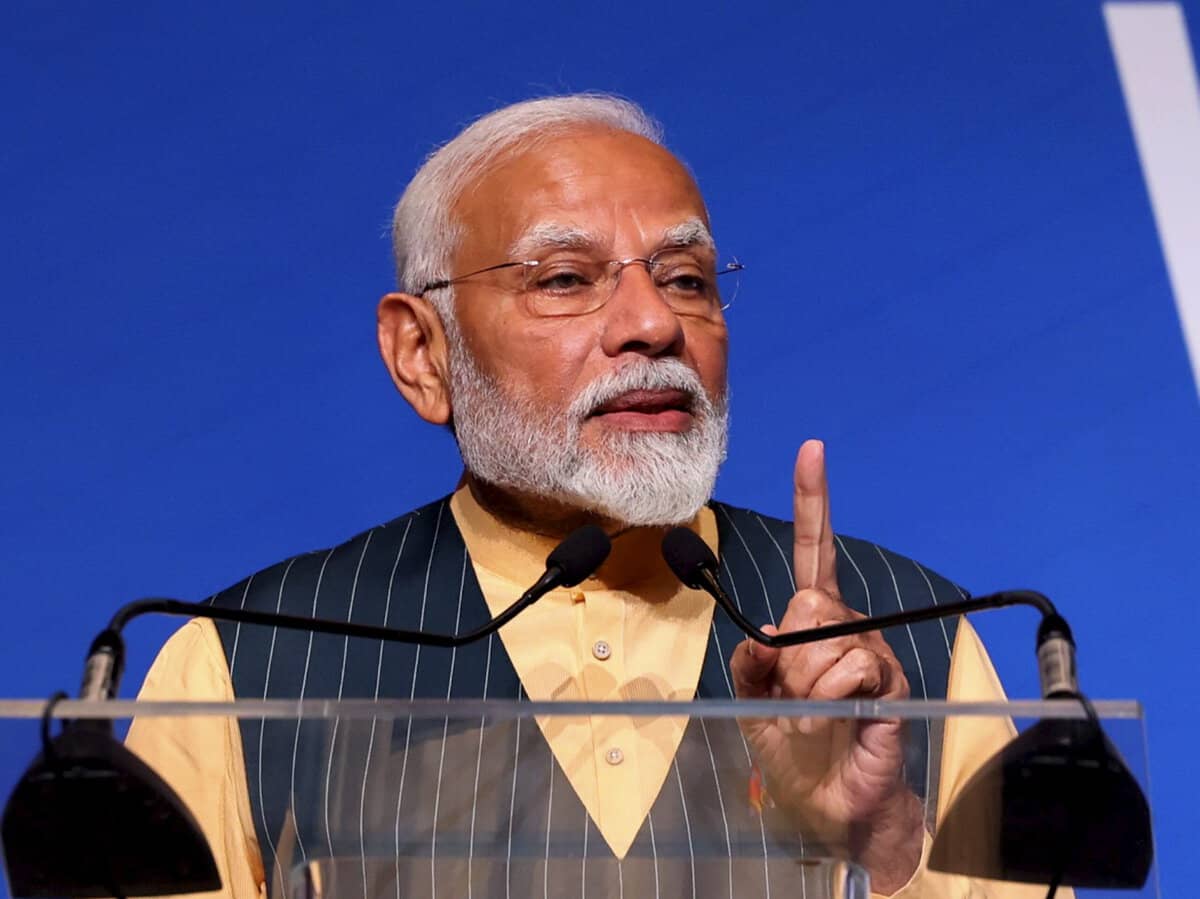
New Delhi: Prime Minister Narendra Modi on Saturday said that India has emerged as a food surplus country with a robust agriculture sector and was ready to share its experience to help solve the global problem of hunger and malnutrition amid the challenge posed by climate change.
Inaugurating the 32nd International Conference of Agricultural Economists (ICAE) here being attended by delegates from 75 countries, the Prime Minister said India has developed as many as 1,900 new climate-resilient varieties of seeds for various crops to benefit the country’s farmers which included types of rice that requires 25 per cent less water.
He further stated India has also developed a basket of “superfoods” such as black rice and millet and said that the country was ready to share it with the world, especially to benefit the Global South.
He explained that the black rice being grown in the northeast states such as Manipur and Assam has medicinal value and could fetch good returns to benefit farmers. Similarly, India has emerged as the largest producer of millet which is considered a superfood and is being grown on the “minimum water and maximum production” principle which will help to solve the problem of global malnutrition. The potential of millets was highlighted with the UN celebrating 2023 as the Year of the Millet, he pointed out.
PM Modi said that India had also highlighted at the G20 conference that the country believes in the principle of ‘One Earth-One Family’ and was keen to contribute to the removal of hunger and malnutrition.
The Prime Minister said India has vast and varied expertise in the agriculture sector as farming operations are planned keeping six seasons in mind and there are 50 agro-climatic zones in the country.
“Across every 100 km in the country, the nature of farming changes as different operations are required in the plains, desert, semi-arid, coastal and hilly areas,” PM Modi remarked.
This diverse experience can play a crucial role in transforming agriculture, especially in the Global South at a time when climate change is emerging as a major obstacle in the path of removing hunger and malnutrition in the world, he added.
PM Modi pointed out that India’s experience of farming was also important as the world is striving to ensure human, animal and plant health amid increasing use of chemical fertilisers.
